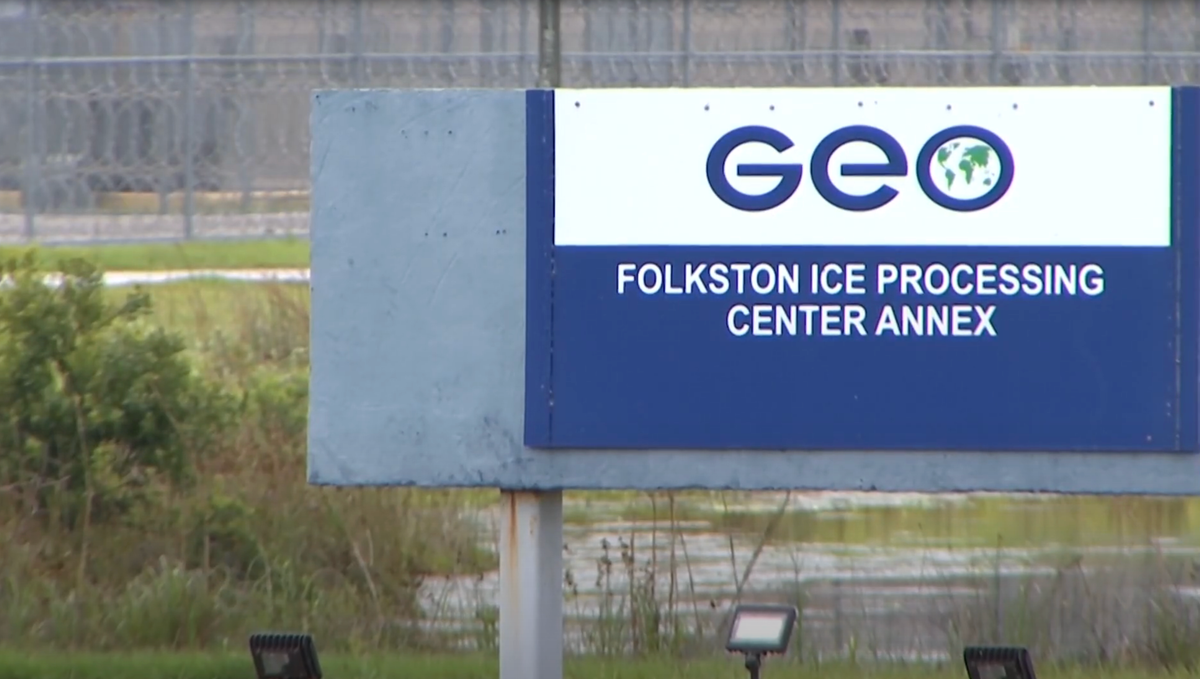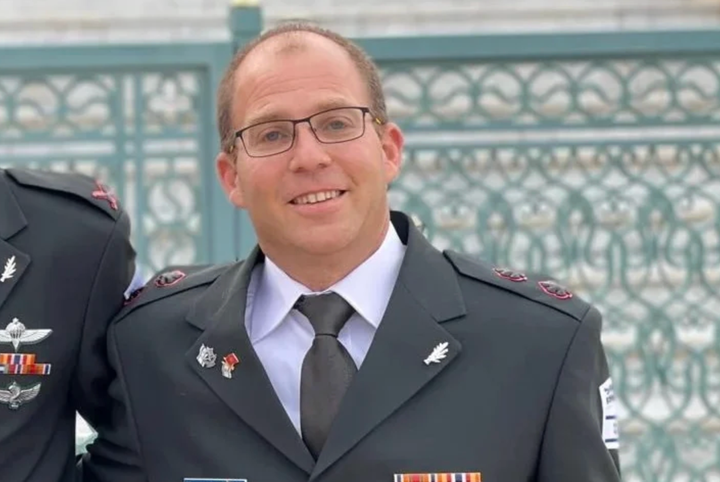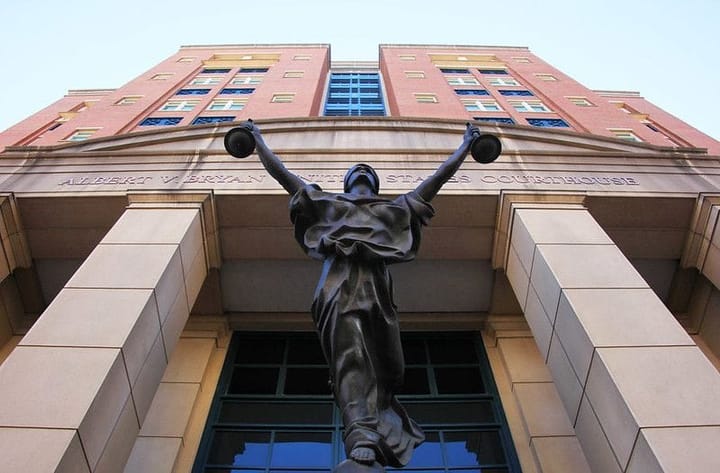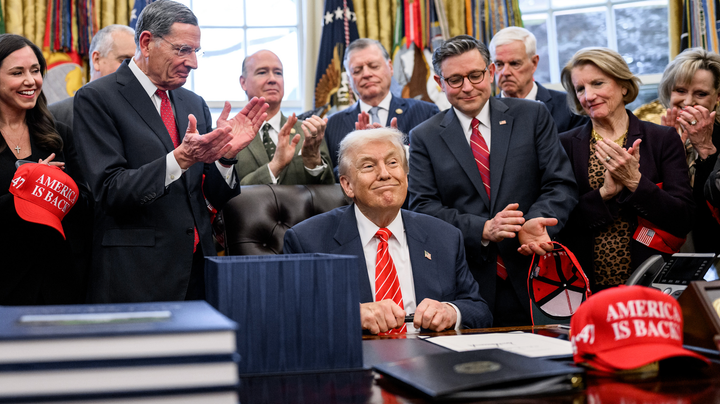ACLU Demands US Court Immediately Order Release Of Journalist In ICE Detention

The following article was made possible by paid subscribers of The Dissenter. Become a subscriber and support journalism on press freedom, whistleblowing, and government secrecy.
The American Civil Liberties Union filed a habeas petition that demands the immediate release of Mario Guevara, a Spanish-language journalist who United States Immigration and Customs Enforcement (ICE) has detained for two months.
According to the petition, Guevara is in solitary confinement at the Folkston ICE Detention Center in Georgia. He is held in a “tiny cell 22 hours a day.”
“He only gets two hours a day outside the cell, during which time he is taken to another bigger cell that looks like a dog crate where he can see the sky and breathe fresh air. He has lost approximately 20 pounds during his time in detention. He is experiencing panic attacks, nightmares, and difficulty sleeping,” the petition further describes.
It claims that ICE officer told Guevara while transporting him that he had been a “headache,” but now they could conduct their operations against immigrants without Guevara reporting on them.
“The Government’s continuing detention of Mr. Guevara on the basis of his journalism is intended to silence him, prevent him from reporting in the future, and retaliate against him for his past speech and reporting, in violation of the First Amendment,” the petition states.
Attorneys also maintain that the detention “violates the substantive due process clause of the Fifth Amendment because it has no legitimate objective and is punitive.”
A habeas petition allows someone like Guevara to challenge their detention or imprisonment by forcing the government to produce the person in court.
Guevara fled El Salvador more than 25 years ago. He is based in Atlanta, Georgia, and one of several journalists in the U.S. who on June 14 covered a local “No Kings” protest against President Donald Trump.
At a protest northeast of Atlanta, police from Doraville arrested Guevara and later transferred him to ICE custody and disappeared him. His attorney Giovannia Diaz searching “ICE’s online detainee locator system” to find Guevara, and ICE’s Atlanta Field Office would not confirm whether he was in ICE custody.
On July 1, an immigration judge granted bond for Guevara. The government argued for a stay and insisted that Guevara “presents a danger to the community because he films and records law enforcement activities and shares his reporting with the public.”
The Board of Immigration Appeals stayed the bond order on July 7, but since July 10, there are no pending criminal charges against Guevara.
“My father is a dedicated journalist who is motivated only by his desire to help others in our community,” declared Katherine Guevara, who is Mario Guevara’s daughter. “For over 50 days, we have been searching for answers while he languishes in detention as punishment for that sense of duty and care. He needs to be allowed to come home to his family immediately.”
Body camera footage showed an officer pointing to Guevara at the protest, "Keep an eye on the guy in the red shirt. If he gets to the road, lock his ass up. He’s been warned multiple times.” The officer confirms that he is referring to Guevara, who was wearing a “PRESS” jacket. He stepped on the road to avoid police and then was arrested. ICE sought his detention after the incident.
As the habeas petition notes, the immigration judge recognized that Guevara was “acting as a journalist” and that he was protected by “freedom of speech as detailed in the Constitution.” Guevara was “reporting on ICE raids in the community,” which is “a national concern and many other journalists across the nation are also reporting on this issue.”
The government attempted to persuade the immigration judge that Guevara should remain in detention because he owns a gun. But the immigration judge rejected this argument because there was no evidence presented of criminal wrongdoing with this alleged weapon.
Typically, according to the ACLU, the government does not appeal the rulings of immigration judge’ decisions to grant bond. Yet in this case, attorneys for the Trump administration appealed and even included videos that Guevara had recorded of police while reporting on their activities—baselessly suggesting that he had tried to expose undercover officers to potential harm.
Jose Zamora, the regional director for the Americas for the Committee to Protect Journalists (CPJ), submitted a declaration in support of the habeas petition.
“The Government makes no pretext about the fact that they are continuing to detain Mr. Guevara because of his journalism,” Zamora stated. “This argument is deeply disturbing to CPJ.”
Zamora further asserted, “It is premised on the interrelated notions that practicing journalism is dangerous in the eyes of the Government, and that people do not have the right to observe what the police and other law enforcement officers are doing in their own community in open and in public places.”
Guevara has also received support from Free Press, the Freedom of the Press Foundation, the Georgia First Amendment Coalition, the National Association of Hispanic Journalists, PEN America, Reporters Without Borders, and the Society of Professional Journalists.
From ICE detention, Guevara has already said that he will abandon his reporting on ICE operations. “I can’t put myself at risk. Unless I become a U.S. citizen, my coverage will have to change.”
The habeas petition further outlines the devastating impact that this act of government repression has had on Guevara:
Mr. Guevara is also suffering from additional harms as a consequence of his continued detention. He is the primary breadwinner of his family, which has struggled financially since his detention. Without the help of their church and a GoFundMe page that was set up following his arrest, Mr. Guevera’s family would be unable to pay for their basic necessities.
Mr. Guevara’s detention is also preventing him from providing care to his son Oscar. In August 2021, Oscar was diagnosed with a large brain tumor and suffered a stroke during surgery to remove the tumor. As a result, Oscar suffers from a stutter, periodic seizures, and intense nerve pain. Mr. Guevara helps transport Oscar to and from medical appointments and work. He also provides critical emotional support to Oscar when he is struggling or in pain. He cannot offer that practical or emotional support while in detention.
The Folkston detention facility is more than four hours away from his family, which compounds the suffering that has been inflicted on him. It is operated by GEO Group, a contractor known for its abusive treatment of detainees. Federal inspectors documented numerous violations at Folkston since 2017.
By holding Guevara in detention for two months, the Trump administration has made an example out of Guevara and sent a chilling message to journalists who weren’t born in the United States: abandon news reporting, particularly on ICE, or you could be next.




Comments ()